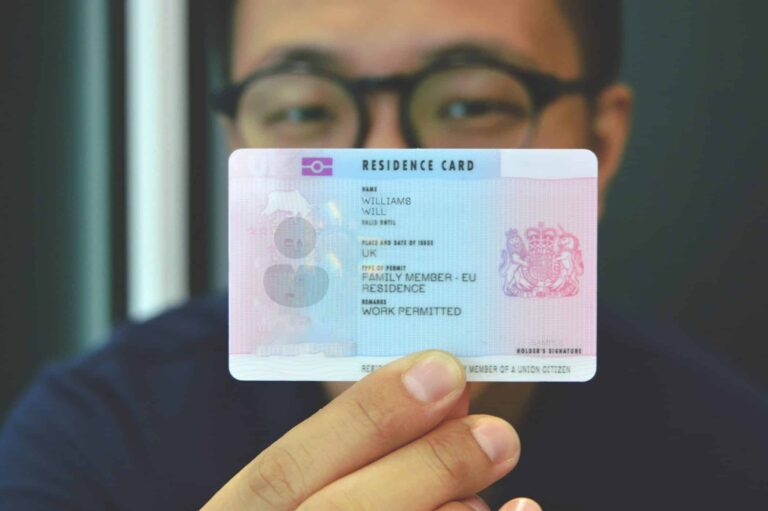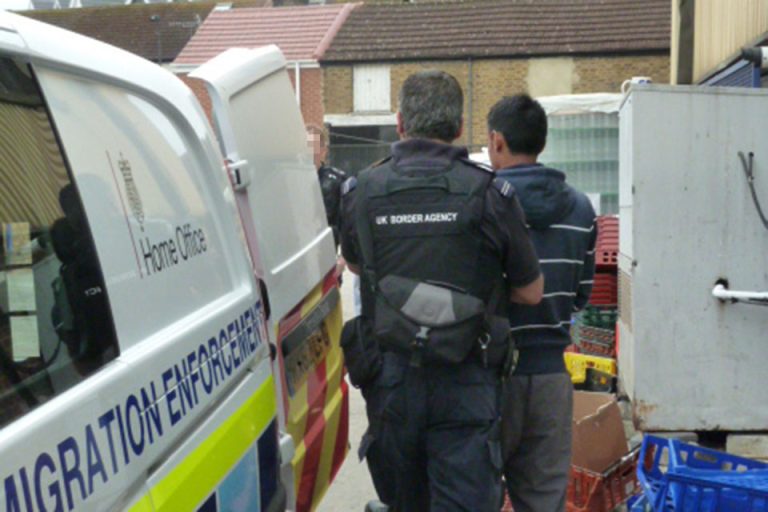Changes to Right to Work Checks
In 2008, the game changed for businesses keen on bringing talent from overseas or shuffling employees to the UK from other branches. That’s when the Points Based System kicked off, along with the Sponsor Licence — a must-have for companies looking to hire from abroad. Alongside this, the Home Office decided to put the ball in the employers’ court, making them responsible for ensuring their staff had the legal thumbs up to work and live in the UK. Yep, that meant doing their homework with Right to Work checks.
Fast forward to today, and those right-to-work rules? They’ve been through a few makeovers, with penalties getting steeper and the immigration chat heating up, edging into some pretty political territory. Just last week, the government dropped a hint about a new, tougher set of rules for employers on the horizon. So, let’s dive into what employers need to know right now about these Right to Work laws and what big changes might be waiting in the wings.
Current Right to Work Check Legislation Requirements
Right now, if you’re caught with illegal workers on your team, or if it looks like your HR isn’t up to scratch in checking and recording who’s got the green light to work and stay in the UK, you could be hit with a hefty fine—we’re talking up to £20,000 for each employee who’s not on the up and up. So, it pays to make sure those HR systems are tight and doing their job right.
Illegal workers include:
- students with expired visas, or students working more hours than they’re allowed to
- people who work on a visitor’s visa
If your organization gets snagged for having an illegal worker on the payroll:
You’ll be slapped with a ‘referral notice’ to give you a heads-up that:
- your case is being considered
- you may get a fine (also known as a civil penalty) of up to £20,000 for each illegal worker
If your organization lands in hot water for hiring an illegal worker, here’s the scoop:
You won’t have to cough up any cash for a fine if you’ve got a solid, valid reason for hiring them. But if that’s not the case, and you’re found responsible, expect a ‘civil penalty notice’ to land in your lap. You’ll have 28 days to figure out your next move. This notice will lay out how you can pay up and what steps to take next. If you think they’ve got it wrong, it’ll also guide you through how to challenge it.
But that’s not all. Immigration Enforcement might shout your company’s name from the rooftops as a cautionary tale to others about hiring illegal workers, leading to a triple whammy of legal, financial, and—worst of all—reputational damage. And if it turns out there’s proof you knew what was up, the big guns come out: the person in charge of your Sponsor Licence could face up to 2 years behind bars, and the business itself could be staring down the barrel of an unlimited fine.
Proposed Changes in the upcoming Immigration Bill
The media’s been buzzing about the government’s tough new stance on illegal employment. Just last week, City A.M reported, “Illegal workers face jail as part of crackdown on rogue migrants and employers.” It’s clear the government means business: they’re hiking up the consequences for employers caught hiring undocumented migrants.
Immigration minister James Brokenshire has made the government’s position crystal clear: illegal workers could end up in jail, and employers who break the rules could see their operations grind to a halt. He’s pointed out that this kind of illegal hiring isn’t just unfair to legal workers and undercutting salaries, but it’s exploiting the illegal workers themselves.
Brokenshire highlighted that upcoming legislation will sharpen the tools available to take action against employers who either know or should have suspected they were hiring someone without the right to work in the UK. The proposed legislation is straight to the point: businesses caught with illegal workers could be shut down, potentially for 48 hours, as a sort of time-out while they prove they’ve done their homework on their employees’ right to work.
And for places like pubs, off-licences, or late-night takeaways? Well, if they’re not playing by the immigration rules, they could lose their license faster than you can say ‘last call’.
Checking a Job Applicant’s ‘Right to Work’ Documents
Before you bring someone on board, make sure they’re cleared to work in the UK. It’s a must-do before you seal the deal with a new hire.
- Get a look at the original documents of the worker — no copies, the real deal.
- Verify those documents are legit while the worker is there with you.
- Make your own copies of those documents and jot down the date you did the check. Keep ’em safe and sound.
Like we touched on before, if you hire someone who’s not legally cleared to work and you haven’t done a proper right to work check, you could be looking at a civil penalty. But here’s the kicker — when you’re doing these checks, you’ve got to play fair. Make sure you’re not discriminating against anyone because of their race. Keep it above board, always.
Checking the documents
- The documents are genuine, original and unchanged and belong to the person who has given them to you.
- The dates for the worker’s right to work in the UK haven’t expired.
- Photos are the same across all documents and look like the applicant/ worker.
- Dates of birth are the same across all documents.
The person you’re hiring must have the green light to do the work you’re offering — and that includes any restrictions on how many hours they can clock in. When you’re bringing international students onto your team, you need to keep a record of their academic schedule and their break times.
And if you spot two different names across their documents, the employee has to give you the backstory, supported by the paperwork—think marriage certificates or divorce decrees—and you’ve got to hold onto copies of these for your records.
Further Checks
When you’re hiring, here’s how to stay on the right side of the law if the job applicant has certain conditions tied to their right to work in the UK:
Conducting Further Checks:
- If there are restrictions or limitations on an applicant’s right to work, you’ll need to do additional digging.
Document Copying Protocol:
- Make unalterable copies, like photocopies.
- For passports: copy the pages with the expiry date, personal details such as nationality, date of birth, and photo, and any visa or right to abode endorsements.
- For Biometric Residence Permits: copy front and back.
- For other documents: copy them in full.
- Keep these copies for the duration of the worker’s employment and two years beyond their departure.
- Note the date when you performed the check.
- Always follow data protection law.
When an Applicant Can’t Present Documents:
- You may request a Home Office check if:
- The applicant has an ongoing appeal or application with the Home Office that prevents them from providing documents.
- They possess an Application Registration Card.
- They have a Certificate of Application less than 6 months old, which must confirm the work you’re offering is allowed. Note that not all such certificates or cards permit work.
Need Assistance? For support on any of the following, you can reach out to us at 020 7494 0118:
- Guidance on recruiting and hiring practices.
- Help with employing foreign staff for the first time.
- Business support available over the phone and online.
- Verifying an individual’s eligibility to work in the UK.






